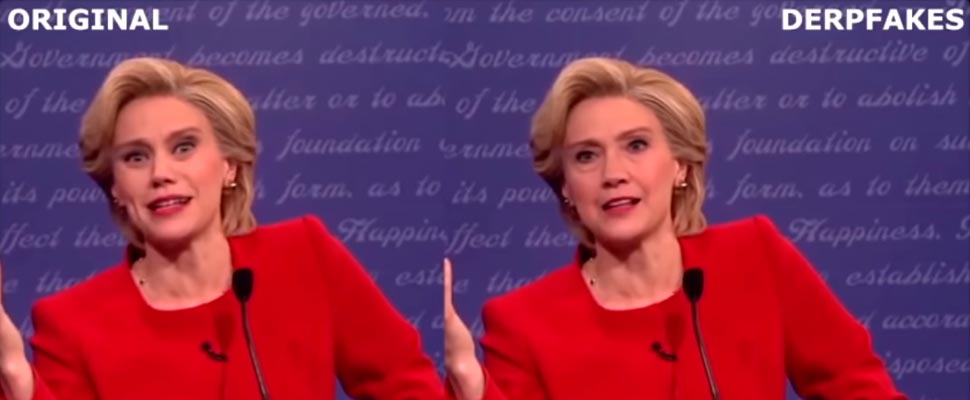What are deepfakes and why are they such a big problem?
Even though we all seem to fight misinformation, technology has advanced to the point where it is difficult to know what is true and what is not .

This technology poses dangers to the veracity of information. / Photo: YT / derpfakes
LatinAmerican Post | Ariel Cipolla
Listen to this article
Leer en español: ¿Qué son los deepfakes y por qué suponen un gran problema?
Have you ever wondered if what you consume is true? Generally, we are used to doing that with images and text. If a post is of questionable quality, we will probably think we are being lied to. The same happens with images, which can be modified thanks to editing programs.
However, what about the videos? According to what the Hipertextual website reports, Microsoft created a tool to detect altered videos that prevent misinformation on social networks. In other words, it is a piece of software, known as Microsoft Video Authenticator, that allows you to analyze the probabilities that something is false.
Along the same lines, we see that the PubliNews medium mentions that deepfakes "reach and challenge journalism", because the possibilities of lying through technology are more present than ever. Let's see, then, what this technique consists of and why it can be both useful and dangerous.
The dangers and benefits of deepfakes
First of all, we should define the deepfakes themselves. According to what the CNet website reports, it is a term that was born from two concepts: Deep learning and fake. That is, the generation of falsehoods through artificial intelligence. It involves superimposing the face of a person where another appears, making one believe that the one who appears in a video is someone different from the original.
Although it poses dangers to the veracity of the information, the truth is that at no time did its creation emerge in that context. On the contrary, it is used for certain humorous purposes that are understood as such. For example, before the announcement of the departure of Lionel Messi from Barcelona, the Diario Registrado website mentioned that they put together a video where the Rosario star sang a song by Ricardo Montaner, saying goodbye to the Catalan club.
Another possibility is the one mentioned by the website of La Tercera, where they replaced the faces of the characters from the Marvel's Avengers video games with those of the real actors. In other words, all those who enjoyed this title could recognize that it was a "fun" hoax, to generate a more real appearance of the title, which did not have the licenses to take them to virtuality.
Also read: The algorithms of social networks modify our reality
Therefore, we are seeing that advances in technology allow us to see a speech or an action as if it were being carried out by another person. Initially, this would not be a problem if it is done for humorous purposes, where the public recognizes that it is a joke. However, what if they had other intentions and people couldn't detect them?
This same situation is posed by the IPS Noticias website, which talks about the “image in post-truth times”. In doing so, what is produced is a break in the credibility of any audiovisual document. In other words, we could reach the point where we do not know what we are consuming, reaching the point that, even, they could lose the character of legal evidence . If everything can be modified without us perceiving it, how would we detect the truth?
In the field of politics, we saw that, as reported by the TekCrispy website, one of the most famous examples was that of Barack Obama calling Donald Trump an “idiot”. In that case, it was prepared by actor and director Jordan Peele, director of the movie Get Out, with the intention of generating “awareness” that anyone can say whatever they want to anyone.
This could even be exploited by politicians themselves. The Xataka website highlights that the political candidate Manoj Tiwari to the Legislative Assembly in Delhi used deepfakes in political campaigns, speaking to audiences in languages he does not know. Therefore, the ethics debate arises: is it okay to do so or is it unfair competition with those who do not use these resources?
For now, we saw that, according to EuropaPress, some social networks, such as TikTok, decided to "ban deepfakes" to fight against misinformation. While it may be an extreme measure – especially thinking of those with humorous overtones – what we know as "reality" could be seriously affected in the event of large-scale changes.





